Boris Johnson will face first-hand criticism from the US over the Huawei go-ahead and other explosive recent rows when Donald Trump’s secretary of state arrives for two days of talks.
Mike Pompeo – a renowned Washington hawk – will meet his opposite number Dominic Raab, the foreign secretary, on Wednesday evening, before discussions with the prime minister himself on Thursday.
The decision to ignore US pressure and grant the Chinese firm permission to help build the UK’s 5G network, albeit with restrictions, is expected to top the list of controversies for the talks.
Download the new Independent Premium app
Sharing the full story, not just the headlines
Mr Pompeo had described the decision as “momentous”, warning Britain’s sovereignty would be at risk if Huawei was given the green light, although there was never any suggestion of cancelling the trip.
However, other potential flashpoints are the UK’s planned digital services tax, the EU’s refusal to dump the Iran nuclear deal and the attempt to extradite Anne Sacoolas over the death of teenage motorcyclist Harry Dunn.
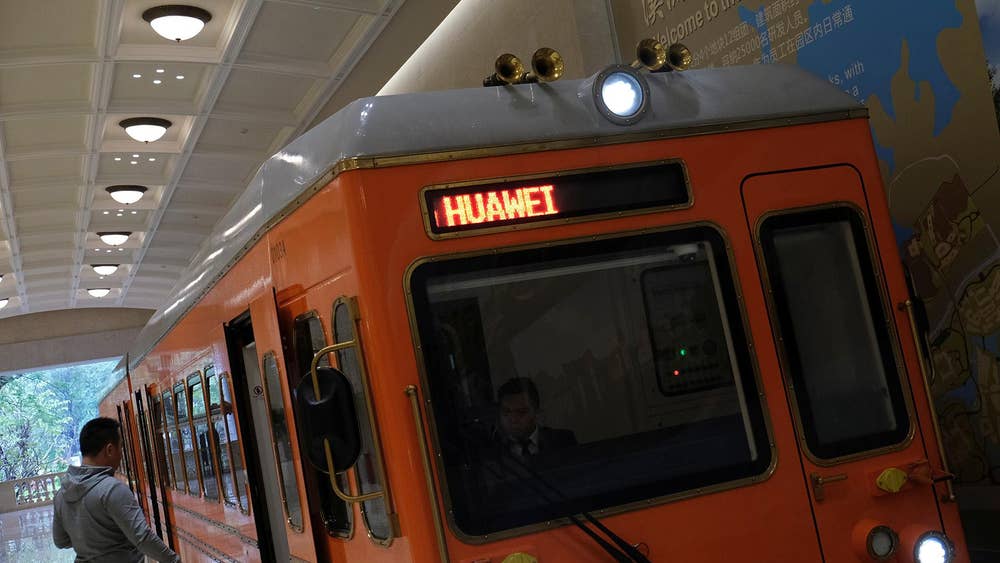

1/20
An employee enters a train in the Huawei’s Ox Horn campus at Songshan Lake in Dongguan
Reuters

2/20
A worker cleans a waterway as office buildings are seen at Huawei’s new Ox Horn Research and Development campus in Dongguan, near shenzen
Getty

3/20
An area of Huawei’s Ox Horn campus modelled after Cesky Krumlov in Czech Republic
Getty

4/20
The real Cesky Krumlov in Czech Republic
Getty
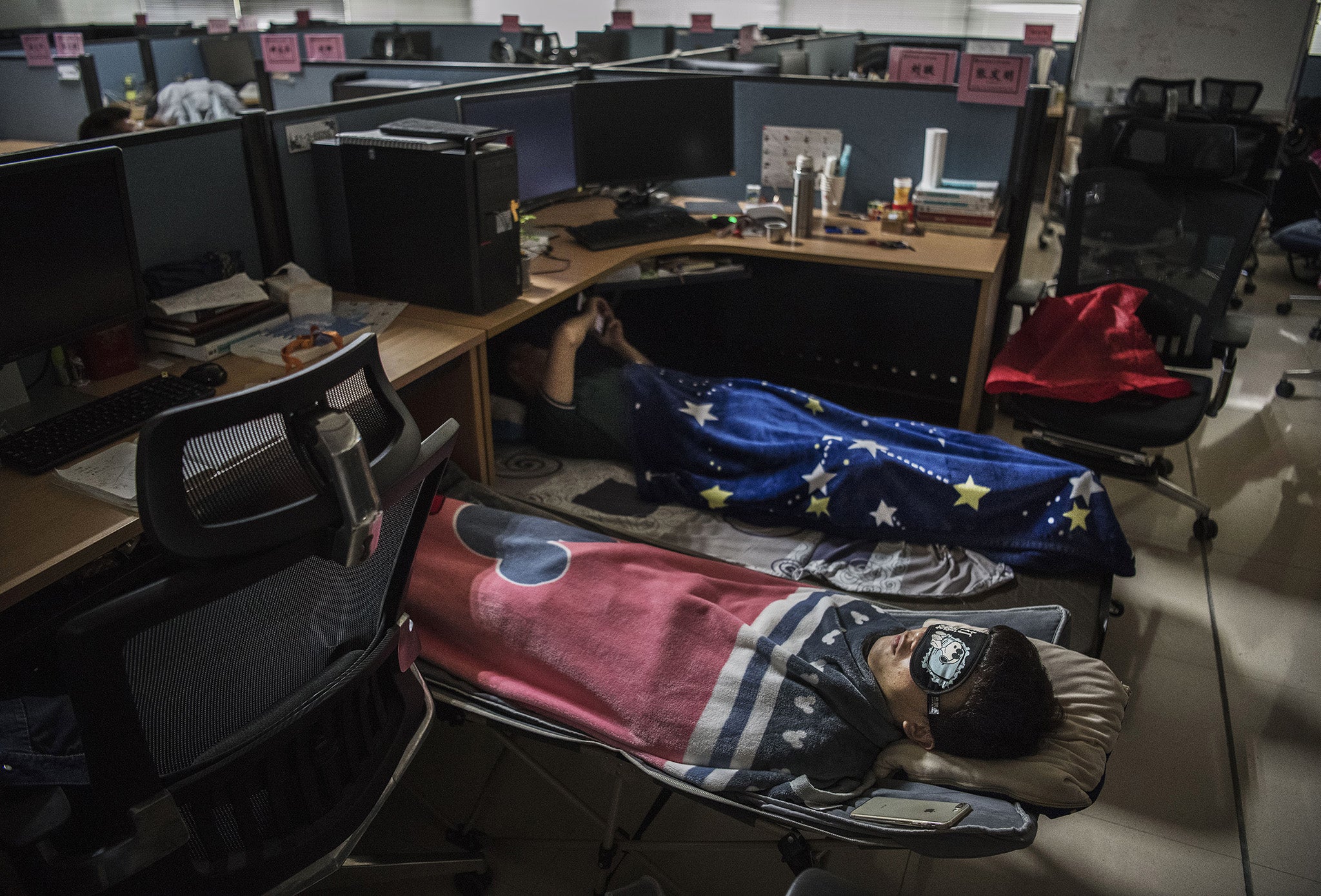
5/20
Employees sleep in their cubicle in the research and development area after lunch at the Bantian campus in Shenzhen
Getty
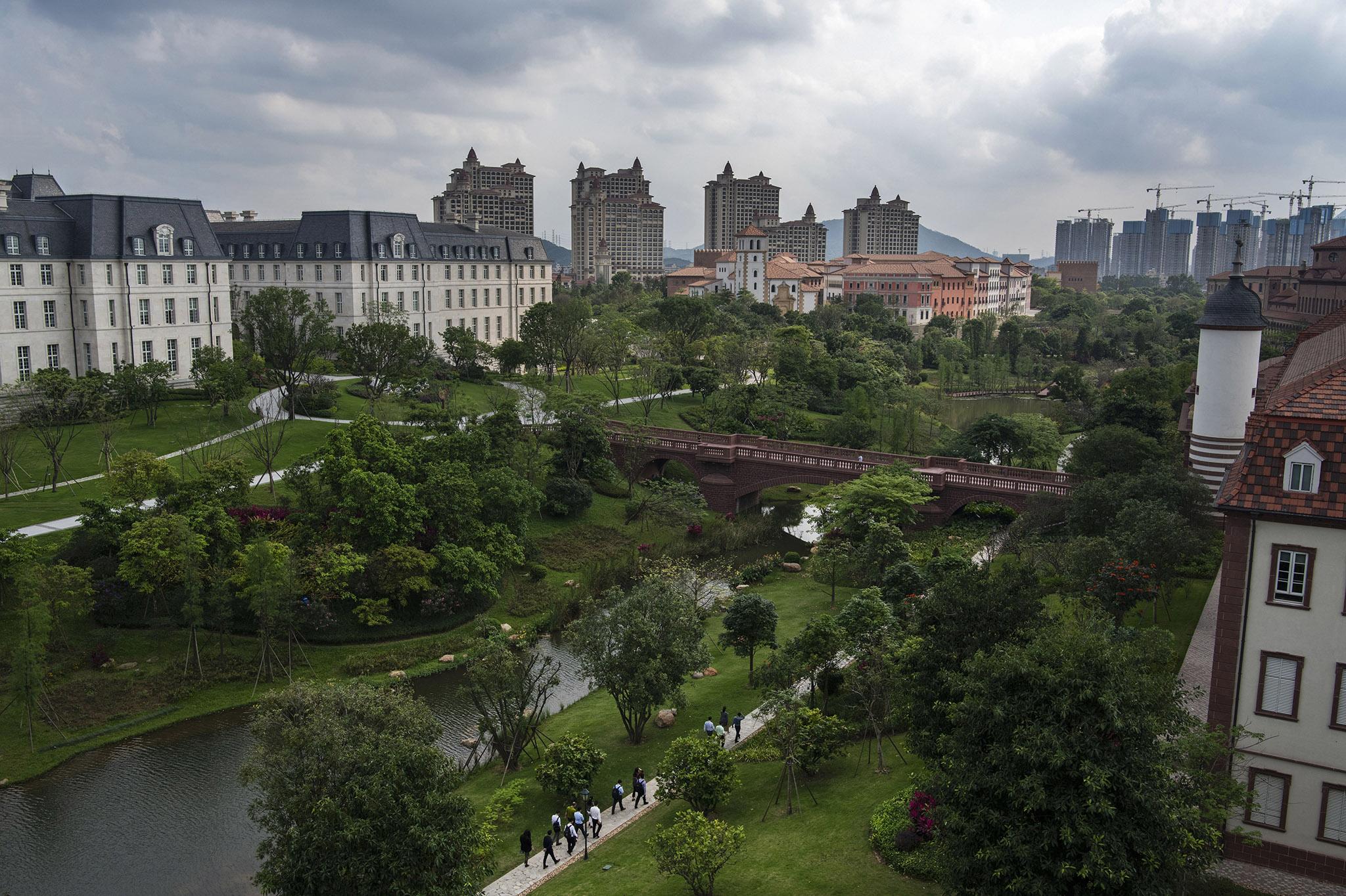
6/20
An area of Huawei’s Ox Horn campus modelled after Heidelberg in Germany
Getty Images

7/20
Employees play basketball on a court within the staff housing complex at the end of the workday at the Bantian campus in Shenzhen
Getty

8/20
A replica of the Karl Theodor Bridge in Huawei’s Ox Horn campus
Getty

9/20
The real Karl Theodor Bridge in Heidelberg, Germany
Getty
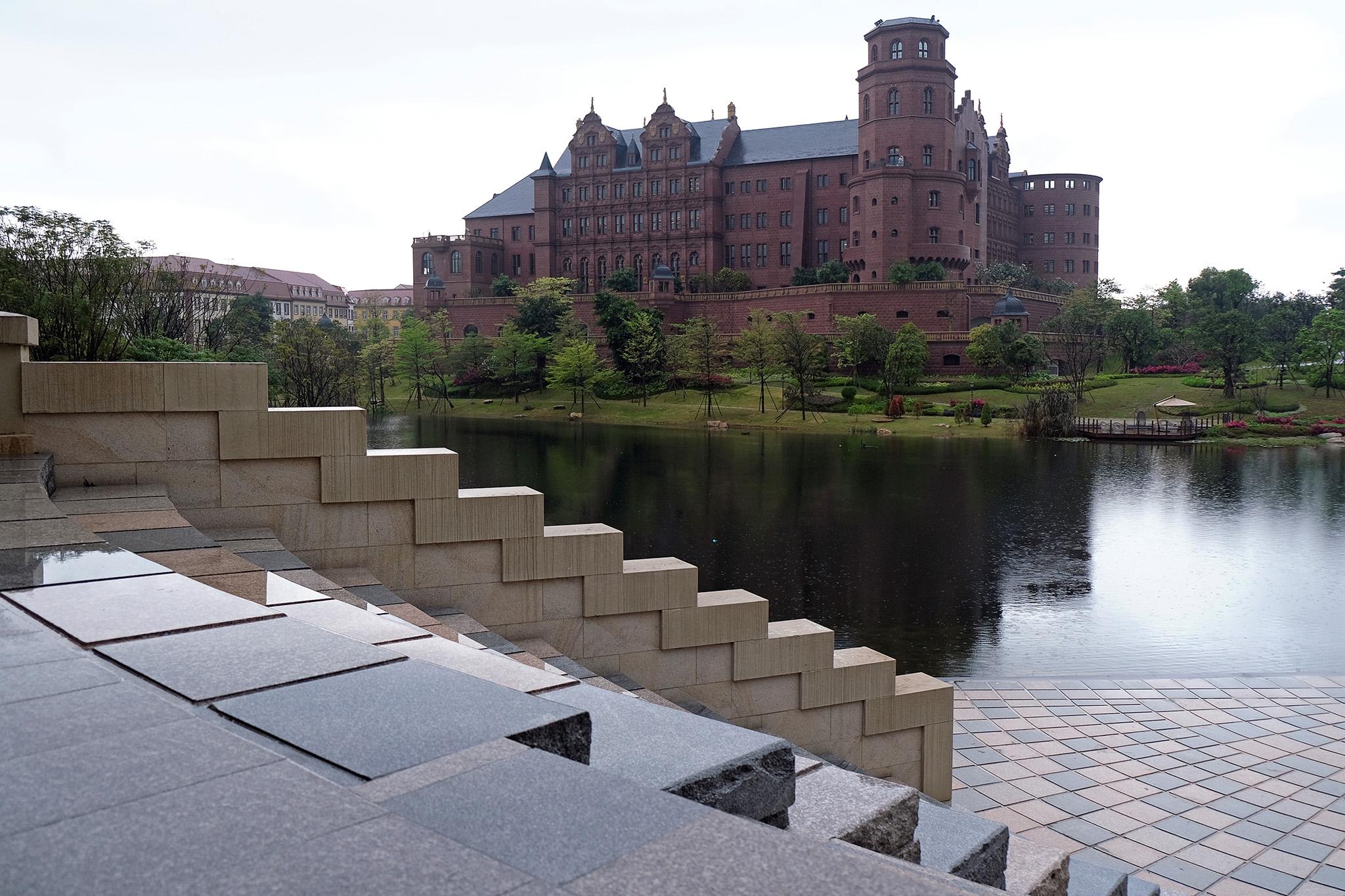
10/20
Huawei’s Ox Horn campus at Songshan Lake in Dongguan
Reuters
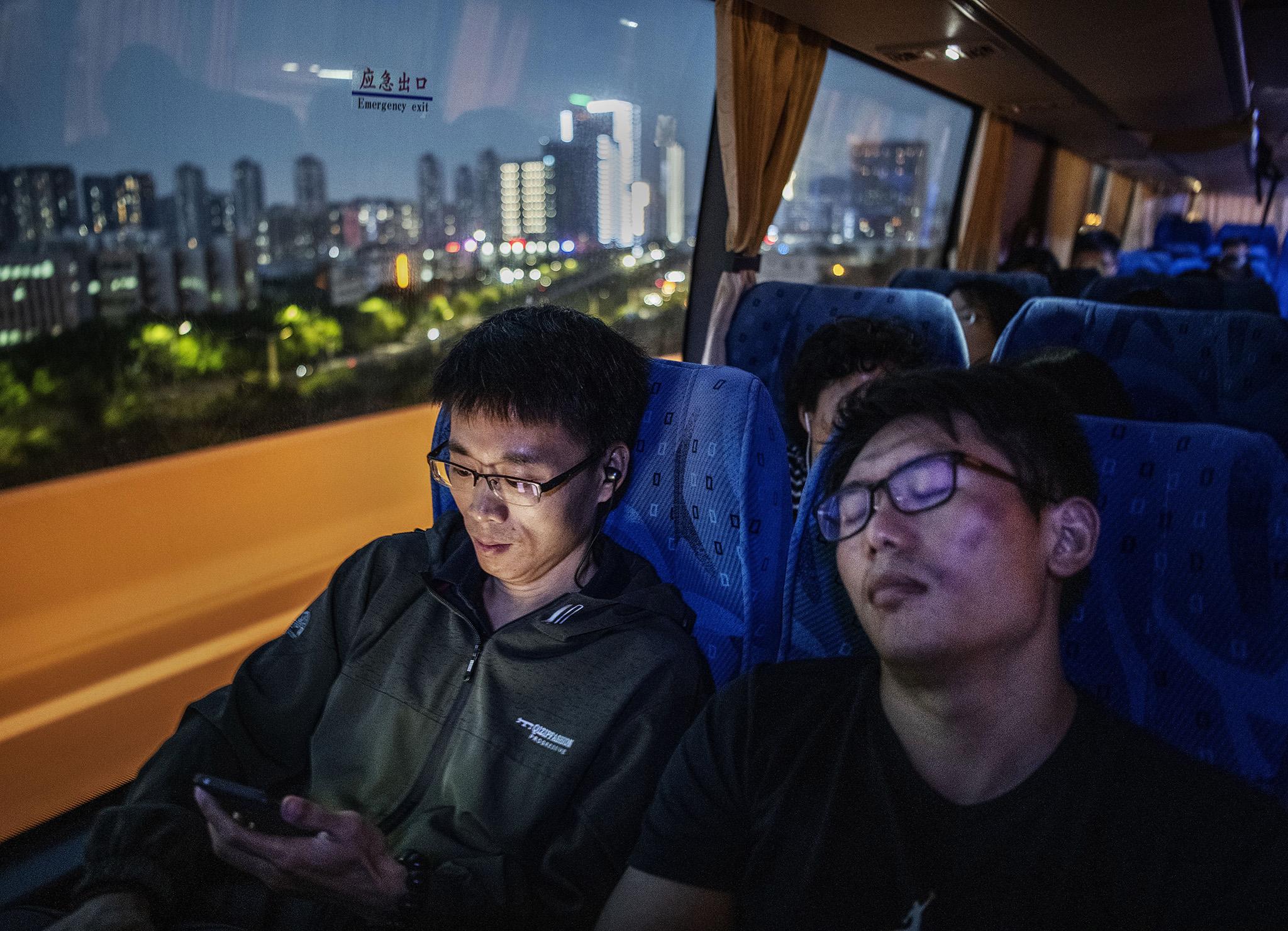
11/20
Employees ride the bus home at the end of the workday from the company’s Bantian campus in Shenzhen
Getty

12/20
Huawei workers eat their subsidised lunch in one of many large cafeterias at the company’s Bantian campus in Shenzhen
Getty
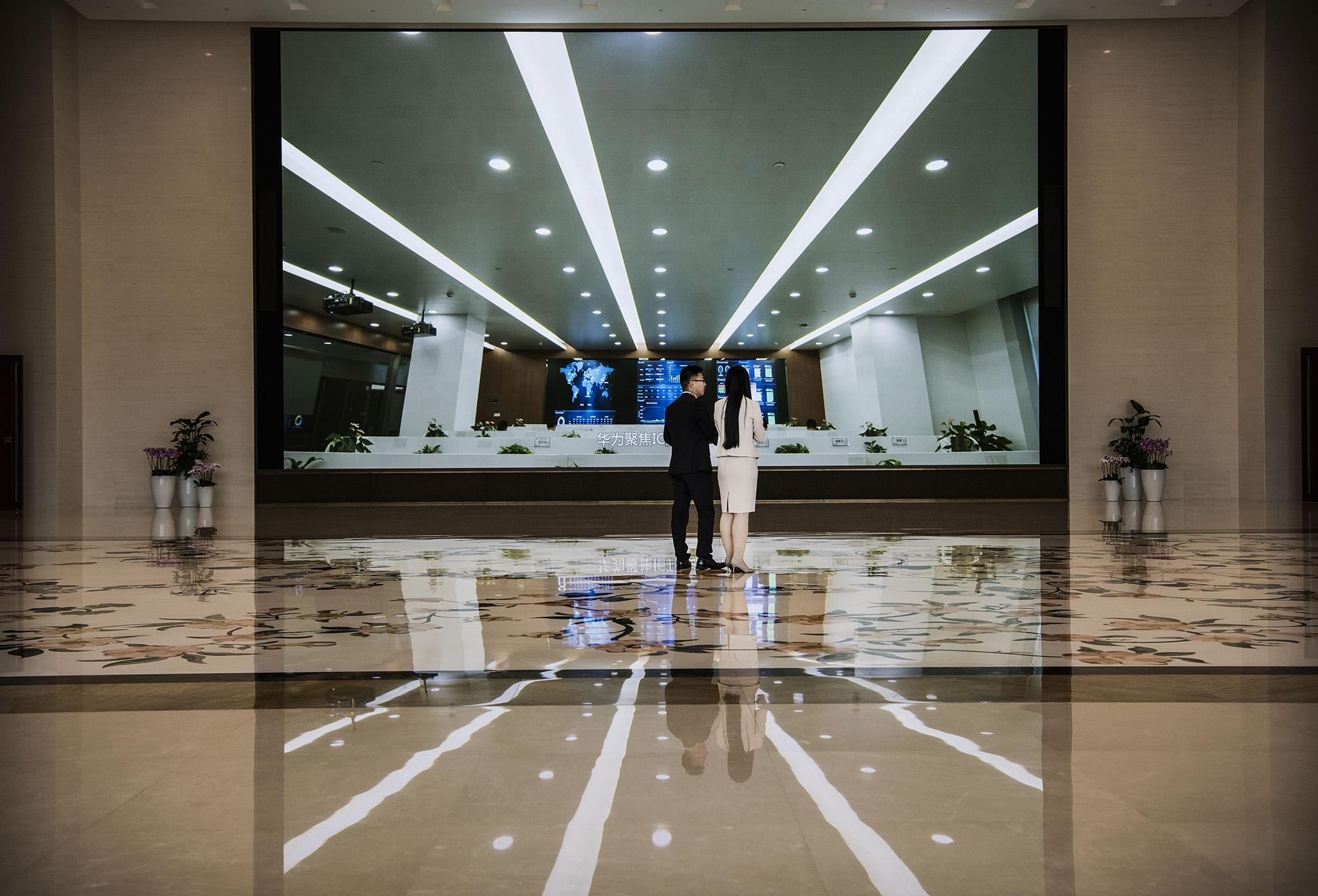
13/20
Reception staff walk in front of a large screen showcasing different technologies in the foyer of a building used for high profile customer visits at the campus in Shenzen
Getty
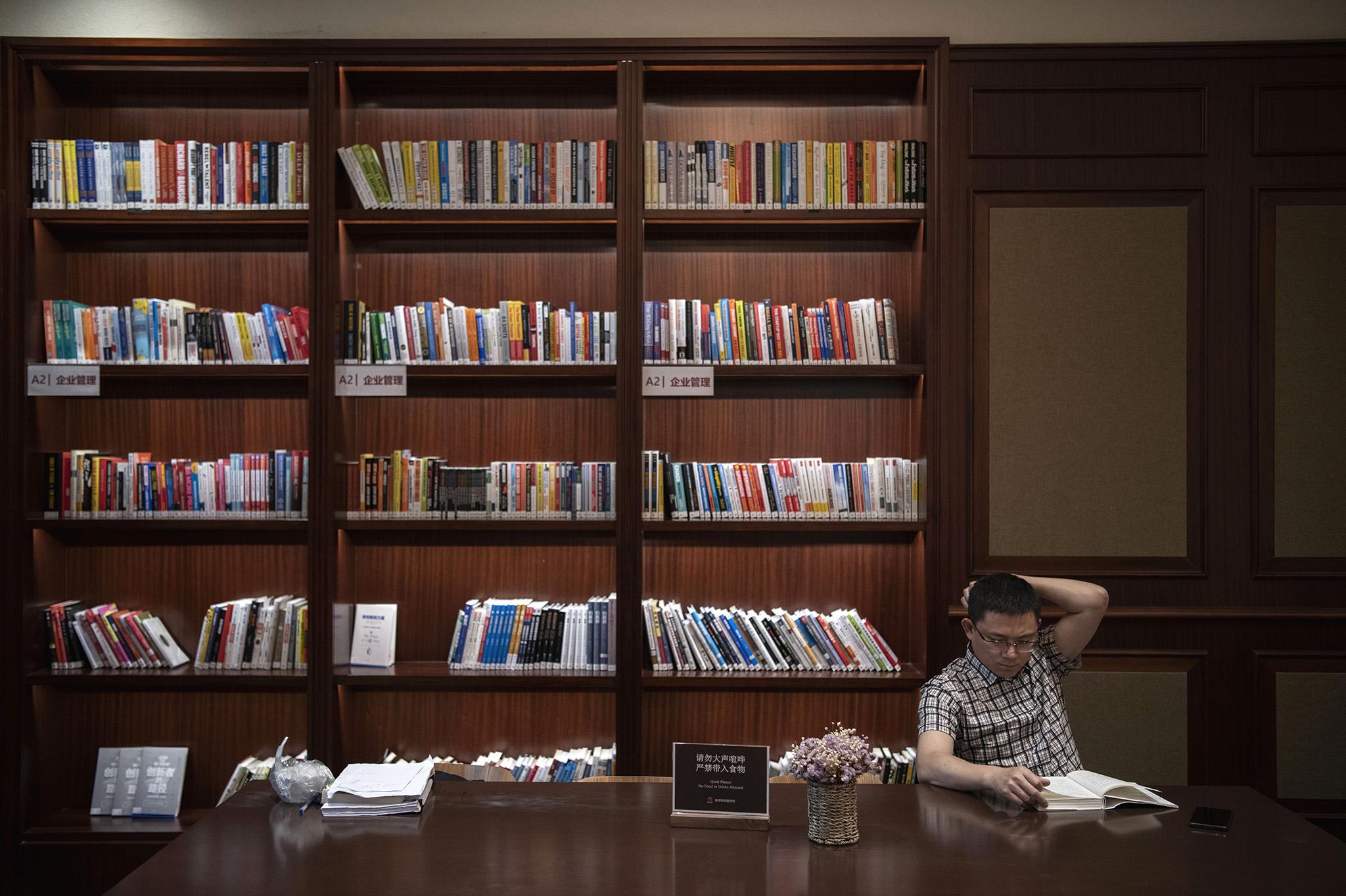
14/20
An employee reads in the staff library on a break at the company’s Bantian campus in Shenzhen
Getty

15/20
An area of Huawei’s new Ox Horn campus modelled after a European City
Getty
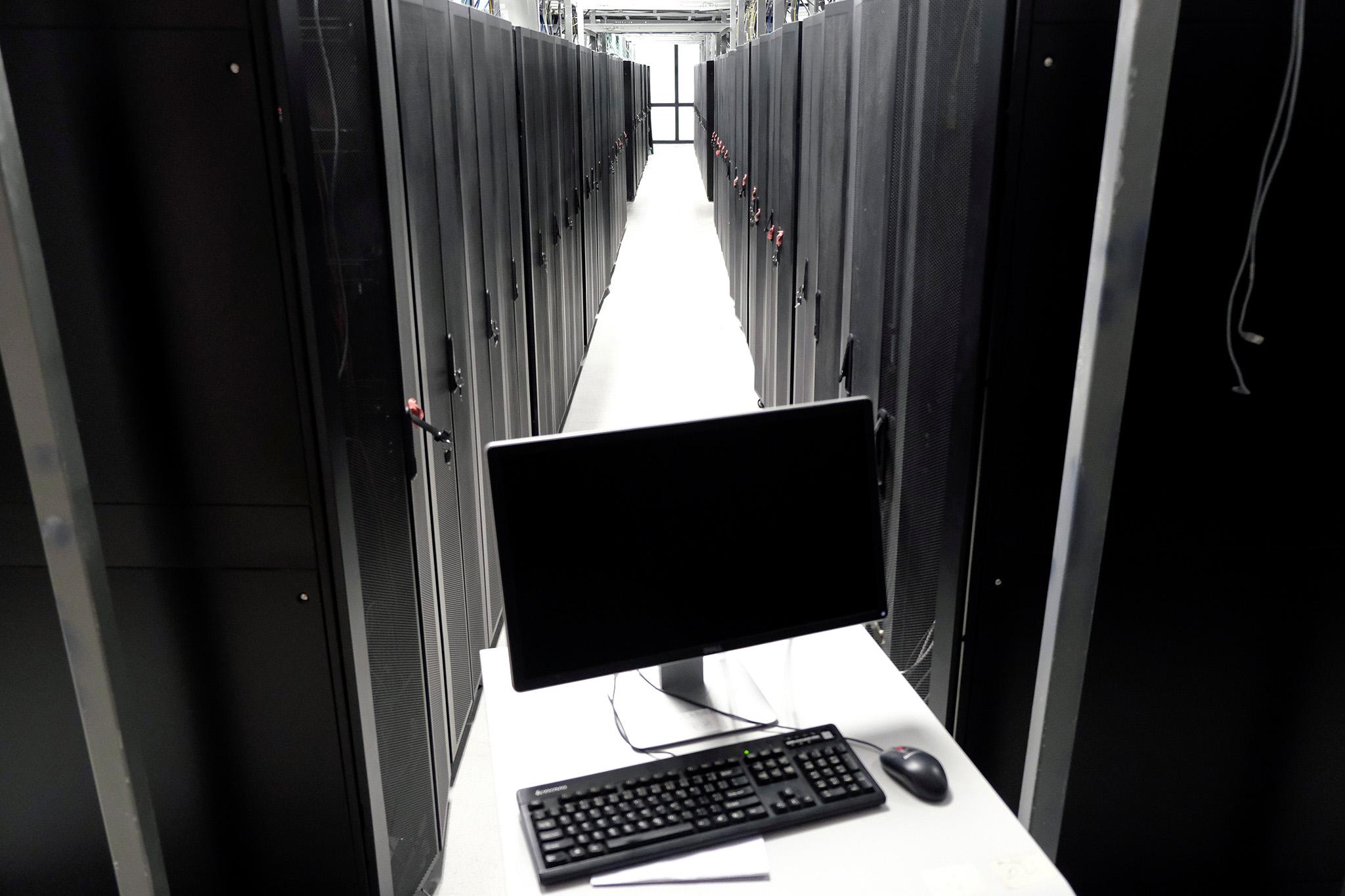
16/20
Servers are seen inside Huawei’s factory campus in Dongguan
Reuters

17/20
The conductor waits for a train in the Huawei’s Ox Horn campus at Songshan Lake in Dongguan
Reuters

18/20
A general view shows the research and development centre at Huawei’s Ox Horn campus
AFP/Getty

19/20
Employees works on a mobile phone production line at Huawei’s factory campus in Dongguan
Reuters

20/20
An office building on the Huawei campus in Dongguan
AFP/Getty

1/20
An employee enters a train in the Huawei’s Ox Horn campus at Songshan Lake in Dongguan
Reuters

2/20
A worker cleans a waterway as office buildings are seen at Huawei’s new Ox Horn Research and Development campus in Dongguan, near shenzen
Getty

3/20
An area of Huawei’s Ox Horn campus modelled after Cesky Krumlov in Czech Republic
Getty

4/20
The real Cesky Krumlov in Czech Republic
Getty

5/20
Employees sleep in their cubicle in the research and development area after lunch at the Bantian campus in Shenzhen
Getty

6/20
An area of Huawei’s Ox Horn campus modelled after Heidelberg in Germany
Getty Images

7/20
Employees play basketball on a court within the staff housing complex at the end of the workday at the Bantian campus in Shenzhen
Getty

8/20
A replica of the Karl Theodor Bridge in Huawei’s Ox Horn campus
Getty

9/20
The real Karl Theodor Bridge in Heidelberg, Germany
Getty

10/20
Huawei’s Ox Horn campus at Songshan Lake in Dongguan
Reuters

11/20
Employees ride the bus home at the end of the workday from the company’s Bantian campus in Shenzhen
Getty

12/20
Huawei workers eat their subsidised lunch in one of many large cafeterias at the company’s Bantian campus in Shenzhen
Getty

13/20
Reception staff walk in front of a large screen showcasing different technologies in the foyer of a building used for high profile customer visits at the campus in Shenzen
Getty

14/20
An employee reads in the staff library on a break at the company’s Bantian campus in Shenzhen
Getty

15/20
An area of Huawei’s new Ox Horn campus modelled after a European City
Getty

16/20
Servers are seen inside Huawei’s factory campus in Dongguan
Reuters

17/20
The conductor waits for a train in the Huawei’s Ox Horn campus at Songshan Lake in Dongguan
Reuters

18/20
A general view shows the research and development centre at Huawei’s Ox Horn campus
AFP/Getty

19/20
Employees works on a mobile phone production line at Huawei’s factory campus in Dongguan
Reuters

20/20
An office building on the Huawei campus in Dongguan
AFP/Getty
Mr Trump, distracted by his ongoing impeachment trial and what he claims is a “peace plan” for the Middle East, has yet to comment on the Huawei go-ahead.
But some senior US politicians have made their fury known, including Trump ally and senator Lindsey Graham, who implored the UK to think again.
“This decision has the potential to jeopardise US-UK intelligence sharing agreements and could greatly complicate a US-UK free trade agreement,” he tweeted.
Fellow senator Mitt Romney, a former Republican presidential candidate, said: “By prioritising costs, the UK is sacrificing national security and inviting the Chinese Communist Party’s surveillance state in.
And senator Tom Cotton, a member of the Senate intelligence committee, called for a “thorough review” of intelligence sharing arrangements with the UK.
The latest news on Brexit, politics and beyond direct to your inbox
“I fear London has freed itself from Brussels only to cede sovereignty to Beijing,” he said. “Allowing Huawei to the build the UK’s 5G networks today is like allowing the KGB to build its telephone network during the Cold War.”
Mr Johnson also faces a backbench rebellion when the Commons votes on Huawei later this year, although – with his 80-strong majority – at least 40 rebels would be needed to defeat the government.
Iain Duncan Smith, the former Tory leader, said: “We want to see modifications and changes made. We want to see commitment to actually getting Huawei out of the system over a period of time. They’ve got more to do.”
The prime minister attempted to smooth things over with the US president when he telephoned him on Wednesday afternoon – when he also offered strikingly warm backing for the so-called peace plan.
Palestinian leaders reacted with fury to proposals widely seen to meet Israel’s key demands in the decades-old conflict while failing to offer them a viable state.
But Mr Johnson told Mr Trump it “could prove a positive step forwards”.
Source: UK Politics - www.independent.co.uk



